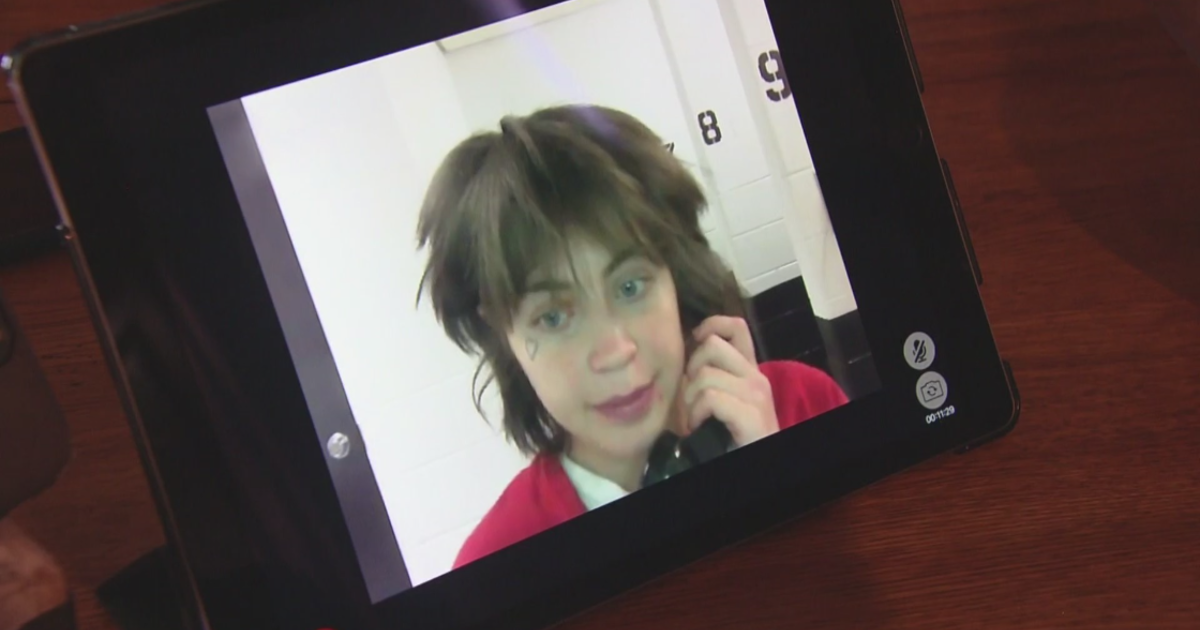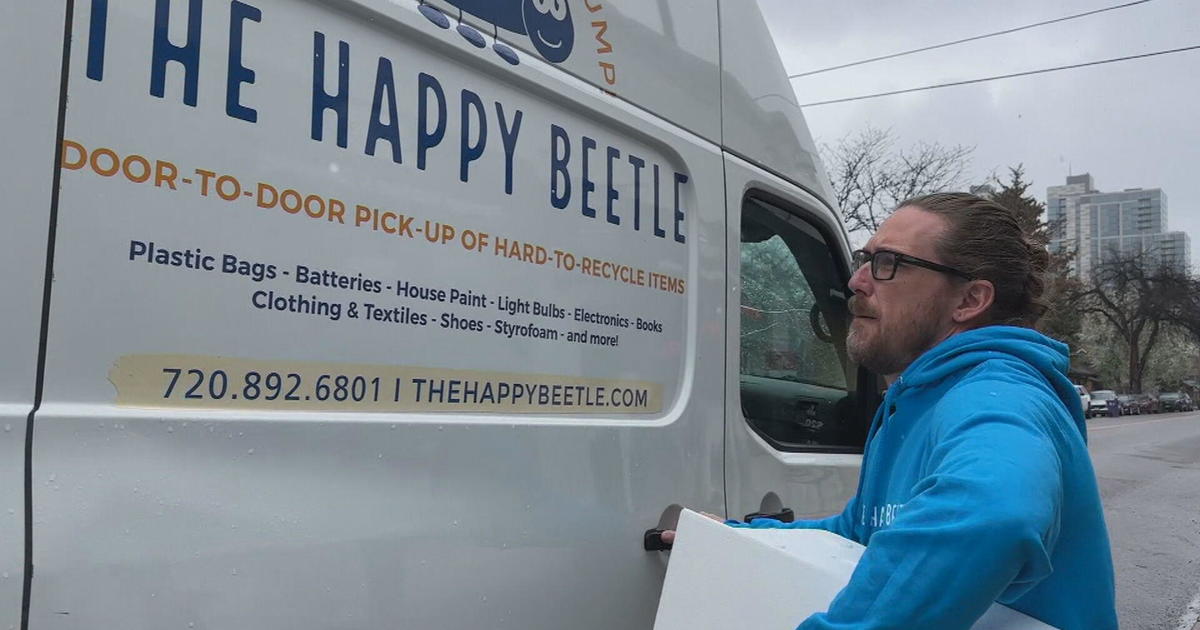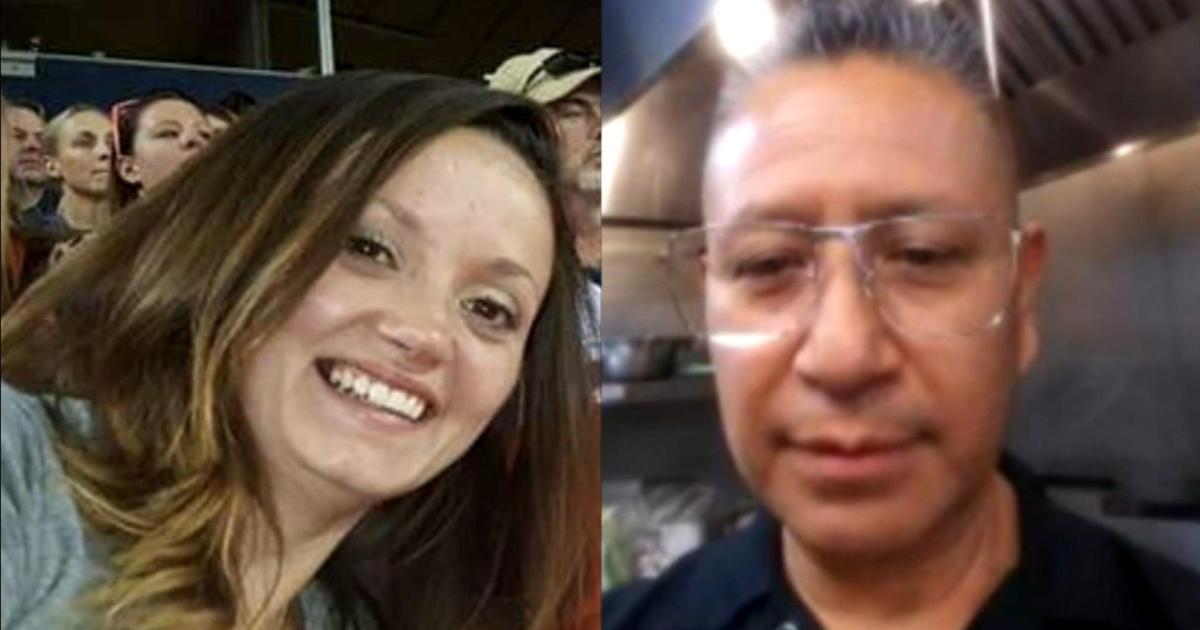Painting Helps Greeley Artist With Brain Injury
GREELEY, Colo. (AP) - Even today, decades after he fell off a cliff, Chuck Abrams spends a few minutes a day wriggling the fingers on his left hand.
The act makes him smile. He appreciates it more now. There was a time when he didn't know if he'd be able to use those fingers again.
That seems hard to believe now, if you look around the Family of Christ Presbyterian Church, which is showing the latest exhibit of his oil paintings through Oct. 23. Those paintings are just the beginning. There are stacks in his garage and his apartment, and he rents a storage unit to keep the rest. He has so many that the owner recently asked him if he wanted more storage space. That's partly the reason for the show: He needs to sell a few before someone puts him on the next edition of "Hoarders."
At one time, after that fall, Abrams could not use his hands. He woke up from a two-month coma with a brain injury that at the time, he said, reduced him to the mind of a child.
He was 18 and on a track scholarship at the University of Cincinnati when he hiked to the top of a hill with a few friends. Abrams loved wide, expansive views, and he crawled out on a cliff to get a better look. He fell 90 feet. Abrams, who was a high jumper, remembers tucking and rolling, as if he had just cleared the bar.
Doctors didn't know then what they know now about brain injuries, and they sent him to a psych ward. Abrams wanted to draw, as many children do, and his father, Leo, got him some materials. He drew Mickey Mouse, bringing his father to tears.
Today he is once again an adult, and you may not realize he has any kind of a brain injury at first. He laughs frequently and makes others laugh even more, and he is an articulate speaker, even if his stories occasionally drift away into the ether when he can't remember the next line. He laughs when that happens, too. He's learned to laugh at many of the frustrating parts of his injury.
"If you can't laugh at all the crap I've been through," Abrams said, "then you'd probably go crazy."
See? He's funny. He won't laugh, however, at gentle reassurances. Many of us forget things, like our car keys, a guest says.
"People are well-meaning, but they're almost insulting when they say something like that," he said. "It makes light of this condition. I've been through a lot because of it."
Abrams, after all, has a serious condition far more serious than misplacing his car keys, though he does that, too. Doctors call it "organizational deficit." Abrams, to be blunt, could not function through his daily life without the help of the Greeley Center for Independence's Stephens Brain Injury Campus. Workers there organize his life for him. They scatter reminders throughout his apartment, like a tray that dings when he needs to take his medicine, and make him a list of things he needs to accomplish that day or week. Abrams loyally follows those lists because, if he does, they represent freedom. He can live independently if he does, even if he can't work.
Doctors compared his brain injury to someone with Alzheimer's, though his condition won't deteriorate. His father died from the disease, and as Leo struggled with it, he told Abrams he could finally relate to his son. The two were as close as they ever were in life before Leo died.
Abrams loved art as a boy and showed some talent before he went to the University of Cincinnati, so doctors, at a loss at what to do with him, sent him back to the college as a part of his therapy and put him in a drawing class. He was drawing close to stick figures in a college-level course, but he got better, and after moving back to New York to live with his family, he enrolled at Cooper Union, where he got an arts degree in 1974.
He moved to Colorado to be with a girl, and they got married. They eventually divorced but had two children, and today Abrams is a grandfather. He moved to Greeley a decade ago because his neurologist works here. He wanted to live in Boulder. Boulder has those wide, expansive views that he always loved. But now he's thankful he found his way to Greeley.
The Center for Independence is home, he said, and allows him to be a leader: He considers himself a voice for those with brain injuries because he's one of the fortunate few who can speak about it. Though his painting style is more traditional, the center doesn't even mind that Abrams splatters his walls with paint, just like Jackson Pollack, when he's in a creative mood.
"They listen to me," Abrams said. "I'm comfortable there."
He's in a creative mood a lot. He paints every day, sometimes for several hours a day, sometimes into the middle of the night. His family sends him checks to cover his painting expenses, including a brother who gives him $350 a month just for art supplies. He would give his paintings away - as he said, he needs to get rid of a few - but he's selling them at the show to help cover the costs of making them.
Painting helped him regain the use of his hands. Now can wriggle the fingers on his left hand to a blur. He appreciates that more now. But he appreciates painting the most.
He was an artist before the fall off that cliff. After that injury, he lost what he calls the "sixth sense." Artists, and athletes as well, call it being "in the zone," when you get so lost in your creativity that the world around you, and its distractions, fade to black.
He doesn't remember when his sixth sense returned. But he's feels lucky that when he now paints, he does so with joy.
- By DAN ENGLAND, The Tribune
(© Copyright 2012 The Associated Press. All Rights Reserved. This material may not be published, broadcast, rewritten or redistributed.)



